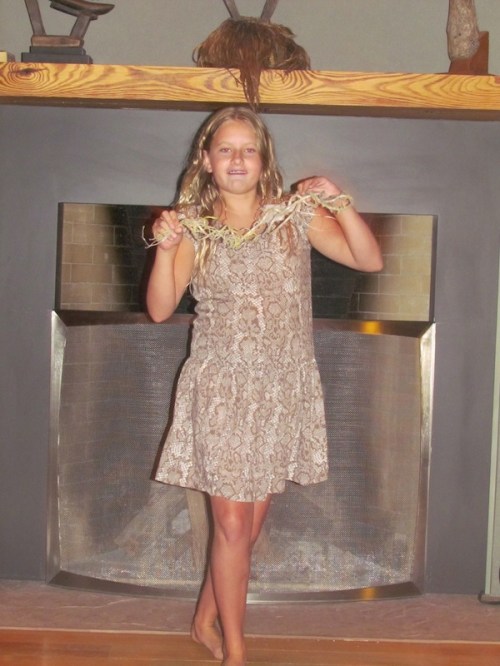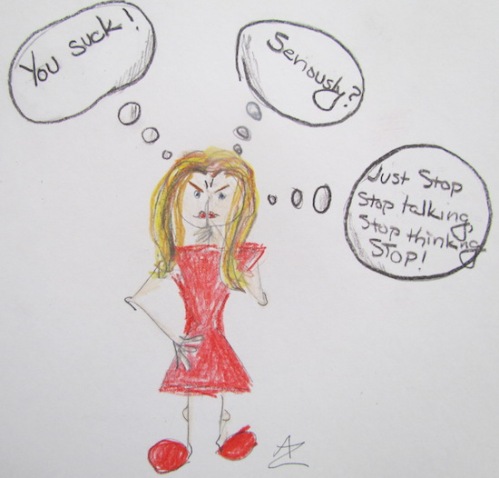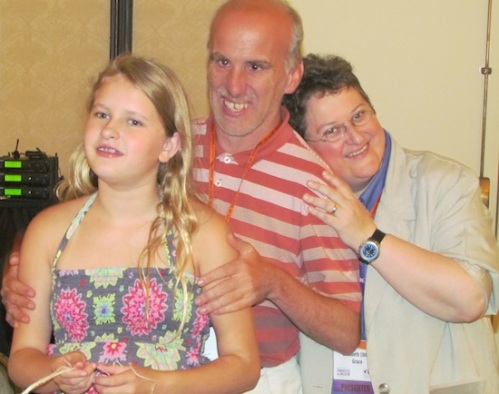Two days ago Emma told me I could write about people’s reactions to her, though it is more accurate to say this post is about my reactions to what I perceive to be people’s reactions. I asked Em if I could write about that too and she gave me her permission. My feelings are not necessarily the same as my daughter’s. I may perceive someone’s curiosity and even confusion as annoyance or impatience or even outright anger, while Emma remains in the moment, without judgment or adding layers of interpretation to people’s responses to her. Someone who makes a comment or tries to engage her in conversation, a person she then walks away from or answers with, “Emmaemmaemma!” I may decide is judging her harshly or is drawing conclusions about her that they may not be. Sometimes I decide my daughter is saddened by the reactions she gets from others, yet when asked, she tells me she liked that person and felt happy meeting them.
So it was, a few nights ago when a dozen or so people came over for dinner. I knew only one of them, the rest being complete strangers. Typically at any gathering, either here or at our home in New York City, we know almost everyone who enters our home. And they, in turn, have met, or at least know we have two children. Whatever happens is usually met with smiles and kindness. People might ask questions, some will actively seek to engage, others do not attempt to, but all are friendly and take whatever happens in stride. We have wonderful friends, and those who are not kind, are not our friends… but this group was made up of people I’d never met and so when Emma said she wanted to sit at the dinner table with them, I felt a certain degree of trepidation.
I imagined they were confused by her and it felt awful. I stood nearby, ready to interpret, ready to intervene, ready to take over, ready to control the situation. But my daughter does not need me to take over, she’s perfectly capable of interacting with people without my intervention. At one point she thrust her hand out blocking one woman’s view of her, so that the woman could not see Emma, or more accurately, Emma could not see her and the woman immediately made it into a game of peering over and under Emma’s hand. Emma smiled and began to laugh. “Don’t look at me!” she said in delight. The woman stopped and made a big point of looking away. Emma giggled.
I went into the kitchen briefly and when I returned, one woman I imagined, looked worried. Another guest I thought seemed annoyed or maybe nervous. I am sensitive. I know this about myself. I think I can “feel” people’s energy, and often I can, but sometimes I decide I know what others are thinking and feeling and I’m wrong. I have always been hyper aware of people’s vibes, sensing their emotional state, which has caused me problems when I’ve been wrong, as well as kept me safe, when I’ve been correct.
After everyone left, Emma said to me, “Have another dinner party tomorrow?”
“Did you have a good time, Em?” I asked.
“Yeah!”
“How did you feel when that woman was looking at you and you held your hand out blocking her view of you?” I asked.
“Playing don’t look at me game!” Emma answered, laughing.
“Was that fun?” I said, wanting to make sure she was okay with the interaction that had taken place.
“Yeah! Another dinner party tomorrow!!”
After Emma went to sleep, I lay awake, feeling troubled. Emma’s experience of people is not the same as mine. I am fearful of people, or I tend to be. My daughter does not share my fears. I sense people’s intent and often believe what I’m sensing, as though it were fact. I hear and sense people’s words, often read between the lines, take their words, add my interpretation of them from the way they hold themselves, the tone they use, the way they look and draw conclusions from all these factors. My daughter does not do what I do. I’m not sure how she interprets others, but I do know it is different from the way I do. Both my children interpret the world differently from me. This is a good thing.
Neither of them are as fearful as I am. Neither of them shrink in fear when someone is angry as I do. Neither of them physically pull away when someone raises their voice as I do. I have a physical response to what I perceive people are thinking and feeling. I feel slightly nauseous when I think someone is angry, even if they are not, or if they’re angry, but not about anything to do with me, I still feel uneasy. If someone seems particularly upset, my hands will shake, it’s hard for me to speak. If I become angry, my face will turn red, my whole body feels hot and I will begin to shake. If very upset I cannot form coherent sentences. Sometimes, whether angry or hurt, I feel pain in my chest and it becomes hard to swallow, my breathing becomes shallow and it feels as though there is less oxygen in the room. All of these things are ways of adapting, I understand this, but I also am relieved when I see both my children not interpreting people and therefore not responding to a perception of people’s emotions as I do.
Performing for guests











